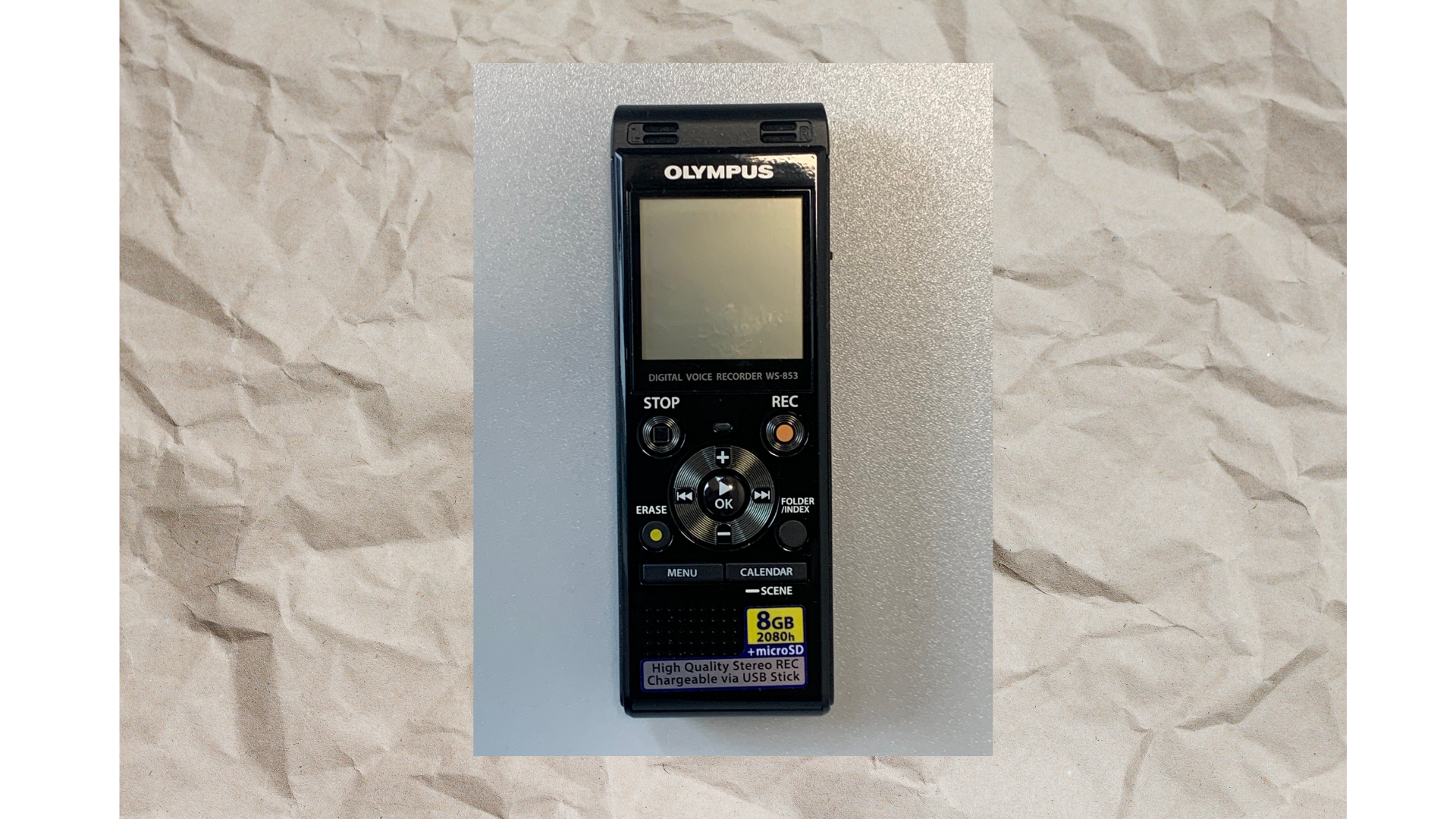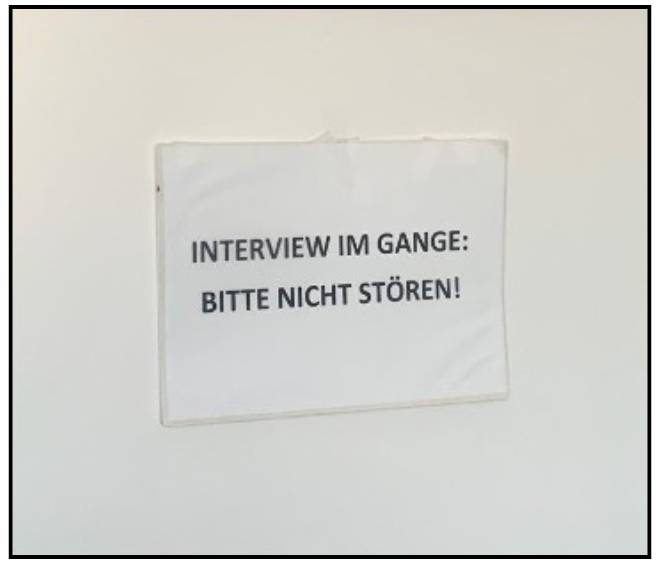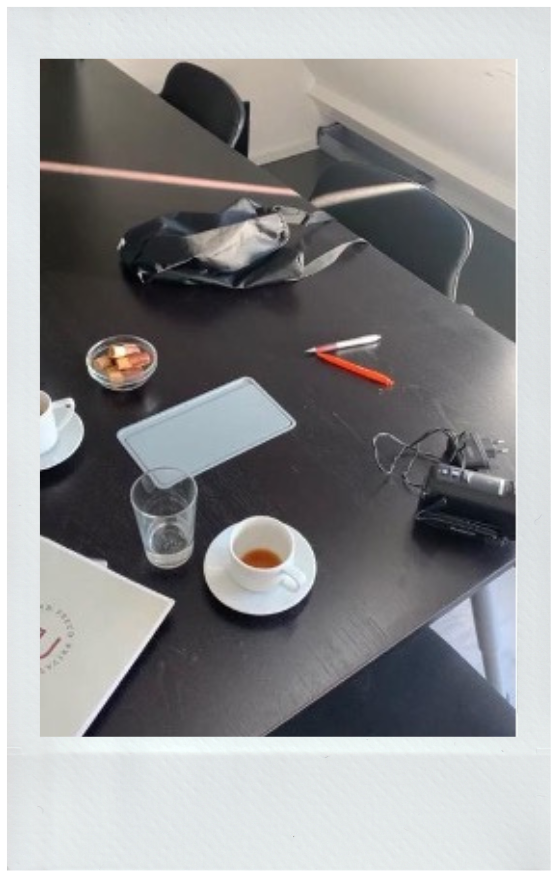Behind the Scenes: Writing Our Own Histories
In the "Feminist-psychological Voices in Vienna" project, we traced the landscape of Vienna's women's counseling scene. We conducted oral history interviews with Austrian feminist psychologists, psychotherapists, counselors, social workers and psychiatrists.
Our project aimed to raise awareness and enhance the visibility of Vienna's rich scene of feminist psychological knowledge and practices. To this end, we created biographical profiles in German and English from our oral history interviews with feminist 'psy workers' in Vienna for the archive of Psychology's Feminist Voices.

Aside from these fascinating life stories (a collection of the Austrian profiles can be found at the end of this exhibit), an exciting aspect of this research for us was that, as feminist psychologists researching other feminist psychologists, we were studying the field to which we belong.
Many interviewees knew about each other, and some looked back on long shared connections and personal histories. Remarkably, many of the women interviewed referred to their time studying with the first feminist psychologists (such as Agnes Büchele or Anna Vobruba), who were interviewed by the team members of the first project, "The Psychological is Political". It seems like the experience of the possibility of feminist psychology in Vienna lived on in their very own psychological work, and they, in turn, went on and shaped the field of (feminist) psychology and influenced and inspired how feminist psychologists – like us– experience the discipline today.
With this in mind, we want to take you to the 'behind the scenes' of our research. We'll share more about our experiences conducting oral history interviews with feminist psychologists and discuss the unique challenges and insights we encountered when writing feminist biographies.
Oral history = a 'feminist' method of data collection?
In general, oral history is a method of historical science, as well as qualitative research, in which contemporary witnesses are being interviewed. These conducted interviews are then used as a site for historical analysis. The method allows to include real life experiences, stories and memories that have not been written down before in contemporary historical research. Importantly, oral history has the potential to significantly impact contemporary historical research, offering a unique perspective that is often overlooked in traditional methods.

Oral history, therefore, offers the possibility and promise of making people’s untold or marginalized perspectives visible. An additional advancement might be that, unlike other sources, researchers can ask direct questions. In this sense, it can allow valuable insights into contemporary history. This is why oral history comes with a long feminist tradition! As women were not equally represented in records, they were also not equally represented in research. Especially in the second women’s movement, oral history became immensely popular for collecting data, insights, and information directly from the ‘source’ and giving voice to untold stories and perspectives. Yet, the fact that interviewing and, accordingly, oral history interviewing is always, to some extent, a dialogical ad-hoc process also makes it prone to particular relational dynamics, which we will explore in the context of our work in the following.
Relationship work
According to our research experiences in the last years, relationship work played a meaningful part in the research process. Consequently, we even declared “relationship work” a working step in its own right in our funding application for the Feminist-psychological Voices in Vienna project.

The interviews for the Feminist-psychological Voices in Vienna project were conducted by Susanne and Emelie, who have different backgrounds and positions in the field. Susanne, a sociologist and creative writer, has voluntarily been involved in the project since the beginning and has experience in the second women's movement and women's projects in Vienna. On the other hand, Emelie, a young academic, was a project staff member and gained her first insights into the feminist psychological scene through internships and student jobs before working at the university. These different positions within the interdisciplinary and intergenerational team led to other relationships and perspectives with the interviewees. As a result, we were regularly discussing: "Who interviews whom? Who can get in contact with whom? Who would like to interview whom? Who needs to be interviewed to fully capture the field of feminist psychological work in Vienna?"
The different relationships between us interviewers and our interviewees also had an impact on the interview situation and the conduct of the interviews. Especially in the following form: "How do the interviewees react to the interviewer and vice versa? Which questions can be asked? What is left out, what is emphasized, what is asked for? What is not inquired about?" For example, Emelie was sometimes read by our research partners as a 'young academic', which was then used to emphasize their own careers or their first steps in academia. This was not only interesting in terms of reflecting on practical aspects of relationships in interviews but, in fact, also provided valuable insights into the interviewees' own experiences.
The issue of generational and personal references frequently arose during the interview process. Interviews were conducted with people from various backgrounds in the psychosocial scene in Vienna at different stages of their careers, ranging from practising psychotherapists in their 80s to individuals still undergoing further training courses. Some interviewees were well-established and widely recognized, while others were still making a name for themselves and following in the feminist footsteps of their mentors or had already moved on from the field. It became evident that oral history interviews provided interviewees with an opportunity to share the history of their own lives. Still, the awareness of inscribing themselves to a feminist tradition was sometimes also experienced as challenging. This highlights the complexity of intersectionality in research, with scholars exploring the concept of being an "outsider within" or researchers being an "insider to an outsider" in their work, as noted by Adams (2021).

Furthermore, it became clear that not only was the interview process influenced the researchers' respective positionality, but that relations and positions also played a role in the writing of the biographical profiles, in terms of: "What finds its way into a biographical profile? What is emphasized? What is left out and why? What gets explained or assumed as prior knowledge by the recipients and what not?" According to Blee (2019), field relationships (beyond our own positionality) shape the questions we dare to ask and the theories we develop.
Doing feminist history
In this part of the exhibit, we want to shed light on matters of doing feminist history, which can be considered an intervention in itself in specific contexts. Yet, considering the long but hidden history of feminist psychological knowledge production in Vienna, a further question arises about the implications of this type of historiographic research along the lines of "the re-writing of history" and the "re-placing women in the history of psychology" (Bohan, 1990).
And, of course, we could even go so far as to inquire: What makes feminist biographies feminist? – Are feminist biographies biographies of feminist figures? Or does it lay in a particular approach to the research interest (regarding field relationships, data collection methods, and theoretical underpinnings)? Or is it about supporting certain outlets and purposes (such as adding to the cause of building feminist sites of knowledge or enhancing knowledge about feminist issues)?
We cannot provide definitive answers to the questions just raised. Instead, we hope to hear even more sides of these stories someday and want to echo Donelly et al.'s (2022) recall of Sara Ahmed’s "Principles of living a feminist life": "I am not willing to get over histories that are not over."

References
Adams, M. (2021). Intersectionality and Reflexivity: Narratives from a BME Female Researcher Inside the Hidden Social World of Prison Visits. International Journal of Qualitative Methods, 20, 1–10.
Ahmed, S. (2017). Living a feminist life. Duke University Press.
Blee, K. (2019). How field relationships shape theorizing. Sociological Methods & Research, 48(4), 739-762.
Bohan, J. S. (1990). Contextual history: A framework for re-placing women in the history of psychology. Psychology of Women Quarterly, 14, 213-227.
Donnelly, L., Hubbard, K., & Capdevila, R. (2022). POWES is pronounced "feminist": Negotiating academic and activist boundaries in the talk of UK feminist psychologists. Feminism & Psychology, 32(4), 520–539.
